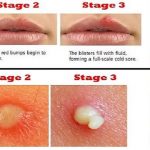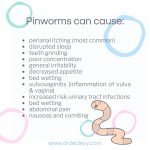Contents
miconazole
Candida yeast is a type of fungus that normally lives on human skin and mucous membranes, but overgrowth of some species such as Candida albicans can result in infection, causing itching and burning. Miconazole oral is a tablet topically placed on the gum to dissolve and kill the fungus over hours.
Miconazole inhibits cytochrome P450 14-alpha-demethylase, an enzyme needed for ergosterol synthesis, an essential component that maintains the integrity of the fungal cell membrane. Additionally, it affects triglyceride and fatty acid synthesis, and inhibits enzymes needed to neutralize free radicals that can damage the cell. These actions damage the fungal cell membrane, resulting in cell death.
Who should not use miconazole?
- Do not use miconazole oral in patients with hypersensitivity to miconazole, milk protein concentrates, or any components of the formulation.
- There have been reports of severe allergic reactions (anaphylaxis). Discontinue miconazole oral at the first sign of a reaction.
- It is unknown if there is cross-hypersensitivity between miconazole and other azole antifungal agents. Monitor patients with a history of azole hypersensitivity and discontinue if there is a reaction.
- Use with caution in patients with liver function impairment.
- Concurrent use with blood-thinning medications like warfarin can enhance anticoagulant effects. Monitor blood clotting time and watch for evidence of bleeding.
What are the side effects of miconazole oral?
Common side effects include:
- Application site reactions: discomfort, pain, itching, burning, swelling, tongue pain, oral ulcer, toothache.
- Anemia.
- Lymphocytopenia (low lymphocyte count).
- Neutropenia (low neutrophil count).
Call your doctor immediately if you experience the following symptoms or serious side effects:
- Serious heart symptoms: fast or pounding heartbeats, fluttering in your chest, shortness of breath, sudden dizziness.
- Severe headache, confusion, slurred speech, severe weakness, vomiting, loss of coordination, feeling unsteady.
- Severe nervous system reaction: very stiff muscles, high fever, sweating, confusion, fast or uneven heartbeats, tremors, feeling like you might pass out.
- Serious eye symptoms: blurred vision, tunnel vision, eye pain or swelling, seeing halos around lights.
This is not a complete list of side effects or adverse reactions. Call your doctor for medical advice about serious side effects or adverse reactions. You may also report side effects or health problems to the FDA at 1-800-FDA-1088.
What are the dosages of miconazole oral?
Buccal Tablet
Adult and Pediatric
Oropharyngeal Candidiasis
- Children below 16 years: Safety and efficacy not established.
- Adults and children above 16 years: Apply 50 mg buccal tablet to gum region once daily for 14 consecutive days.
Buccal Administration
- Do not crush, chew, or swallow the tablet.
- Food and drink can be taken normally when the buccal tablet is in place, but avoid chewing gum.
Applying buccal tablet:
- Apply the buccal tablet in the morning, after brushing the teeth.
- The tablet should be applied with dry hands.
- Place the rounded side surface of the tablet against the upper gum above the incisor tooth and hold in place with slight pressure over the upper lip for 30 seconds to ensure adhesion.
- Once applied, the tablet stays in position and gradually dissolves.
- Subsequent applications should be made to alternate sides of the mouth.
- Before applying the next tablet, clear away any remaining tablet material.
Buccal tablet falls off or is swallowed:
- Buccal tablet does not adhere or falls off within the first 6 hours: Immediately reposition the same tablet. If it still does not adhere, place a new tablet.
- Buccal tablet is swallowed within the first 6 hours: Drink a glass of water and apply a new tablet once.
- Buccal tablet falls off or is swallowed after being in place for ≥6 hours: Apply a new tablet until the next regularly scheduled dose.
Overdose
- No reports of miconazole oral overdose in humans. Systemic absorption of buccal administration of miconazole is minimal.
- Miconazole overdose may cause headache, skin irritation, diarrhea, nausea, vomiting, abdominal pain, and taste perversion.
- Overdose may be treated with symptomatic and supportive care.
What drugs interact with miconazole oral?
Inform your doctor of all medications you are currently taking, who can advise you on any possible drug interactions. Never begin taking, suddenly discontinue, or change the dosage of any medication without your doctor’s recommendation.
Severe interactions of miconazole oral include:
- Saccharomyces boulardii.
- Miconazole oral has no listed serious interactions with other drugs.
- Moderate interactions of miconazole oral include: fosphenytoin, phenytoin, sulfonylureas, warfarin.
The above drug interactions are not all possible interactions or adverse effects. For more information, visit the RxList Drug Interaction Checker. Always inform your doctor, pharmacist, or healthcare provider of all prescription and over-the-counter medications you use.
Pregnancy and breastfeeding
- No adequate and well-controlled studies on the use of miconazole oral in pregnant women. Use during pregnancy only if potential benefits to the mother outweigh risks to the fetus.
- Unknown if miconazole oral is present in breast milk. Use with caution in nursing mothers.
What else should I know about miconazole oral?
- Use miconazole oral exactly as instructed on the label.
- Report hypersensitivity reactions like rash or hives to your healthcare provider.
- Store safely out of reach of children.
- In case of overdose, seek medical help or contact Poison Control.
Summary
Miconazole oral is an antifungal medication used to treat Candida yeast infection of the mouth and throat. Common side effects include application site reactions, hypersensitivity reactions, headache, fatigue, pain, diarrhea, nausea, vomiting, dry mouth, upper abdominal pain, oral discomfort, loss of taste, gastroenteritis, upper respiratory tract infection, cough, sore throat, and others.


